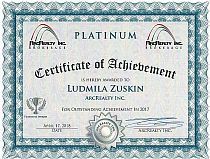1. Do you need a REALTOR®?Occasionally, one can see “For Sale By Owner” signs, and some owners think that selling their own home will not only save them money, but believe they have an advantage over the sellers that have their home listed by a reputable Realtor©. Before you decide to take on this very important and legally complicated process…remember not even most Real Estate Lawyer’s recommend selling your own home yourself in today’s market. Here are a few of the reasons why:
 2. Why choose me as your REALTOR®Selling your home isn’t a simple procedure. It involves large sums of money, stringent legal requirements and the potential for costly mistakes. As your REALTOR® of choice, I will spend the time it takes to help you sell your home in the least amount of time and for the best possible price. 3. The Listing AgreementA Listing Agreement is a contract between you and your agent’s brokerage company. It provides a framework for subsequent forms and negotiations. It’s important the agreement accurately reflects your property details and clearly spells out the rights and obligations of all parties. Generally, in the agreement you appoint the brokerage company as your agent and give its representatives the authority to find a purchaser for your home. The Listing Agreement will outline:
DisclosureIt is the seller’s obligation to disclose facts about properties for sale. The buyers will need to know material facts about the property; that is, anything that could materially affect the sale price or influence a buyer’s decision to buy it. A major cause of post-sale disputes and lawsuits relate to defects and disclosure, but most disputes can be avoided if proper disclosures are made. Intentionally withholding information about a property when selling it can have serious legal consequences. 4. Setting Your PriceHow much should you ask for? Although you may have an idea of how much your house is worth, it’s important to have your home valued on its own merits by a professional. Be careful not to price your property too high or too low. If it’s too high, there’s no sale; too low and you lose on your investment. As your REALTOR® of choice, I have the information and expertise to assess at what prices similar properties in your area have sold, and may be able to help you in this regard. I can also provide information on market history, such as the number of properties sold in your community the previous month or year. 5. Listing and Marketing Your PropertyIf your listing is an MLS® listing, I being your REALTOR® of choice, will place your listing on a real estate board’s MLS® System. Through the board’s MLS® System, all other REALTORS® that are members of that board can find and view information about your property, and all have the opportunity to sell your property. Your property gains more exposure, because it reaches the majority of the real estate professionals in your community. And through REALTOR.ca, the national property website that gets more than a million unique visitors per month, your property is advertised to potential buyers across Canada and around the world. Open HousesIn some situations an open house may recommend. There are two types of open house.
6. Waiting For the Right OpportunitySometimes a home doesn’t sell right away. Avoid the urge to pull your home off the market. Be persistent! Generally, there are three reasons why a home may not sell as fast as others: location; condition; and asking price. Obviously, you can’t change your home’s location. However, you can improve the condition of your home and you can, of course, adjust your price. Throughout the listing process, you need to be constantly comparing your asking price against those of similar properties in your area. Review your selling strategy regularly with your listing agent, who may help you answer the following questions:
7. Accepting an OfferOnce a buyer is found, you’ll receive an offer that will:
As an act of good faith, the buyer will make a deposit with the offer. You don’t have to accept the offer as is. You may wish to make a counter offer that meets the original offer partway. The counter offer is one more step along the way to negotiating the final terms and conditions of the sale. The offer, once signed by everyone, is a binding contract. Make sure you understand and agree to all of the terms in the document. Before signing, you may want your lawyer to review it. Your lawyer should also ensure that you receive compensation for prepaid expenses such as, property taxes, electrical or gas bills, or if applicable, any heating oil left in your tank. After these are paid, you will receive any money you have coming from the sale. Other Possible RequirementsBefore closing, if the buyer insists upon any conditions of sale, you may be asked to provide a number of things.
please don’t hesitate to contact me directly. (The comments contained on this page are for informational purposes only and do not constitute legal advice.) |
-
Full Time Realtor Since 2013
Ontario Licence #4771375
Sales Volume Platinum Award

How to choose the right realtor?
READ CLIENTS REVIEWS!
Как правильно выбрать риэлтора?
ЧИТАЙТЕ ОТЗЫВЫ КЛИЕНТОВ!
-
Get Social With Me: JOIN OUR REALTORS TEAM. YOUR SUCCESS IS OUR INTEREST! Are you an experienced agent, wishing for more money to stay in your pocket, and ready for the next step?
WE OFFER VERY FAVORABLE FINANCIAL TERMS!
Just got a passing mark in your last real estate exam and looking for a brokerage which is great at supporting new agents?
WE ARE NOVICE-FRIENDLY AND ACTIVELY ASSIST THE PROFESSION NEWCOMERS
Realty7.ca-

-
Блог
- СОВЕТ 8: ВСЕГДА ИМЕЙТЕ ПЛАН Б
- СОВЕТ 7: СОГЛАСУЙТЕ ПЛАНЫ КАЖДОГО ЧЛЕНА СЕМЬИ И ОБЩИЕ ДО ПРИЕЗДА В КАНАДУ
- СОВЕТ 6: ДАЙТЕ СЕБЕ 5 ЛЕТ НА АДАПТАЦИЮ В КАНАДЕ
- СОВЕТ 5: НАУЧИТЕСЬ СТАВИТЬ И ДОСТИГАТЬ ЦЕЛИ
- СОВЕТ 4: МАШИНА – ЭТО РОСКОШЬ, А НЕ СРЕДСТВО ПЕРЕДВИЖЕНИЯ
- СОВЕТ 3: НЕ СЛУШАЙТЕ СОВЕТЫ ВАШИХ ДРУЗЕЙ. ПРОВЕРЯЙТЕ ИХ У ПРОФЕССИОНАЛОВ
- СОВЕТ 2: НЕ ОТКРЫВАЙТЕ БИЗНЕС СРАЗУ ПОСЛЕ ПРИЕЗДА В КАНАДУ
- СОВЕТ 1: ИММИГРАЦИЯ ЭТО СТАРТАП













 Facebook (business)
Facebook (business) Instagram
Instagram LinkedIn
LinkedIn